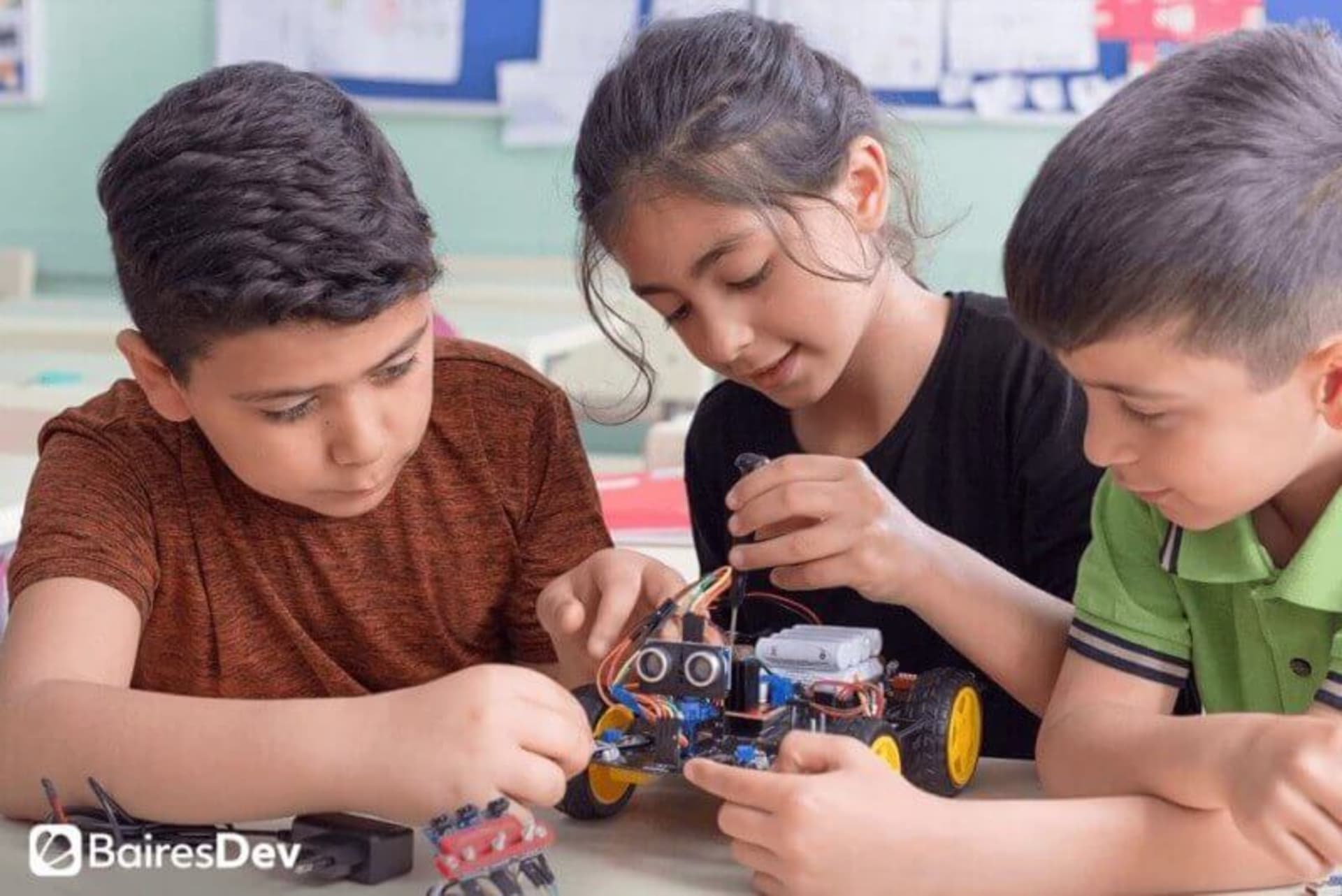When it comes to technology, some people seem like luddites. They only see the downsides of it – and they use them to oppose new technological advancements. From the privacy scandals surrounding big tech companies to the whole “playing God” around genetic tech, it’s easy to see where they come from.
However, if we choose to side with those people, we might be pushing asides the numerous issues technology has come to help us with. Drug research, improved communications, alternative energy sources, more efficient transportation – they all are examples of the good that technology can bring.
So, instead of focusing on the bad stuff that technology can generate (and, unfortunately, that’s a lot), we should also pay attention to how it can improve our lives. Cutting-edge technologies might pose new threats to society (from spreading misinformation to mass surveillance) but they can also help us face some of our most pressing issues. Take the following 6 as great examples.
1. Diagnosing and Treating Degenerative Diseases
One of the biggest concerns of mankind as a whole is healthcare. As the technologies we have available today lengthen our lives, the likelihood of experiencing degenerative diseases increases. From Alzheimer’s and cancers to Lou Gehrig’s and Parkinson’s, there are a lot of aggressive diseases that threaten our lives but that we hardly understand.
Even when we know their consequences oh-so-well, we still haven’t figured out how to slow or stop them. In fact, some of those diseases still don’t have certain causes, just likely culprits. Given that they can affect potentially anyone (even at young ages), it’s in our best interest to devote time and resources to comprehend them. That’s when technology comes in.
Artificial intelligence (AI) is of special importance for future healthcare. Through Machine Learning algorithms, researchers are working in novel non-invasive ways to diagnose degenerative brain disorders in their early stages. The way they are doing it is through predictive analysis that can detect subtle but meaningful patterns that humans might overlook.
Diagnoses aren’t the only focus of AI-based tools. UK biopharmaceutical AstraZeneca and American biotechnology company BERG teamed up to develop new medicines to treat Parkinson’s diseases. Given how difficult and complex the disease actually is, the algorithms are tasked with finding new biomarkers that provide a deeper understanding of the disease that leads to new treatments.
BenevolentAI is another interesting AI-based project that aims to bring therapy for amyotrophic lateral sclerosis (ALS also known as Lou Gehrig’s disease). This severe disease has no treatment whatsoever but the findings of this complex technology seem to be very promising.
2. Cleaning up Our Oceans
We all know or suspect that our oceans are filled with plastic and trash. Sadly, it only takes a trip to one of them to see that firsthand. However, new research published just a couple of months ago suggests that we are clueless about how much plastic pollution there is in the oceans. How much? About a million times worse than we thought. Let that sink in for a minute.
The so-called microplastics are floating everywhere, getting to the bottom of our oceans and being eaten by marine life. What’s worse – we are still feeding the problem with our plastic bags and straws, which degrade and pollute our oceans even more. The environmental and human impact is impossible to calculate.
Technology can come to the aid to, at least, lessen the impact and prevent the issue from getting worse. Take The Ocean Cleanup foundation, for example. The organization believes that it can catch much of that plastic by strategically placing U-shaped screens to trap the trash that floats through the various ocean tides.
Another interesting initiative is The Seabin Project, which installs floating trash cans integrated with pumps and filters in harbors, ports, and marinas. Those devices clean up the garbage and oil floating in the water in spots that are considered some of the major sources of ocean littering.
3. Removing Carbon Emissions from the Atmosphere
Climate change is quite possibly the biggest challenge we have to face today. As such, it requires everyone in the world to contribute to lessening the effects before it’s too late. On the one hand, there are several efforts around the world to make that happen. On the other hand, they don’t seem to be enough.
For instance, the idea of cutting greenhouse-gas emissions is a very noble endeavor but one that won’t be nearly enough to tackle climate change down. Since there’s so much carbon dioxide in the atmosphere already, we need to take that away as well if we want significant results. That’s what experts are calling “carbon sequestration.”
There are many ways to do so, but the most useful when considering how much carbon dioxide we have to remove from the air is to capture it and bury it underground in saline aquifers. However, certain startups are wondering why to bury the carbon dioxide when it’s a somewhat valuable commodity today. Those companies believe that carbon dioxide can be recycled into products.
C2CNT is a great example of this. The startup has developed a process for converting carbon dioxide into carbon fibers. Those fibers can later be used as carbon composites, a fantastic alternative to metal which can be used to make everything from bicycles to airplanes.
And then there’s Breathe, a research team from India, that’s developing an artificial photosynthesis process to convert CO2 into methanol. This is great news, as methanol can be used in a lot of ways, such as making pharmaceuticals and resins, and that can even be used as fuel.
4. Predicting Disasters
Even when we live in a time with technology ripe enough to predict hurricanes with so much as weeks in advance, there are natural and human-induced disasters that still hit us without warning. Floods and sediment disasters, earthquakes, hydrological fluctuations, tsunamis, and disasters caused by unchecked human activity all come with a certain degree of surprise.
Being able to predict all of those with some confidence would let us plan better contingency plans in the short and mid-term while figuring out durable solutions for the long term. Even a warning system able to trigger an alarm some few hours before disaster strikes would be a major benefit in the face of these disasters.
That’s what the Disaster Prevention Research Institute of Kyoto is trying to achieve in its labs. The Japan-based institution is developing innovative technologies to predict floods, mudslides, the impact of environmental changes and remote sensing technologies. Through spatiotemporal modeling of disasters, they are moving disaster prediction forward and creating more accurate warning systems.
For its part, IBM is using its powerful AI-based suite Watson to study volcanoes, in an effort to predict when one of the many volcanoes around the world is going to erupt. Though it has been working on the model for several years, the goal is yet to be achieved but the company doesn’t lose hope.
Technology for the Good of Mankind
These are but a few of the examples that we have today to show that technology can serve a greater purpose and help us face the biggest challenges in our modern world. As with all new technologies, they are far from being flawless or completely successful, but most of them look promising enough to renew the faith in what tech has to offer.
Of course, this doesn’t mean we shouldn’t keep a vigilant eye on tech development and its purposes. But these and other use cases come to show that technology is probably the best ally we have if we are to overcome these huge issues.






